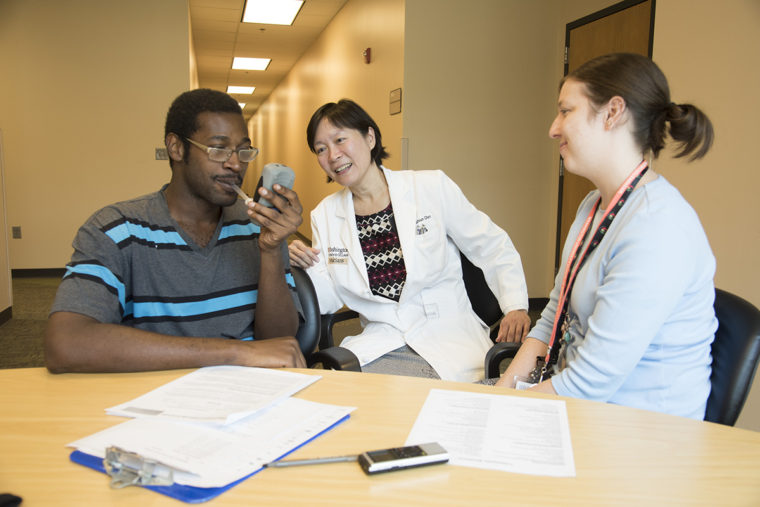Quitting smoking improves health and lowers odds of developing lung cancer. But a new study shows that even among smokers with a genetic predisposition to smoking heavily and developing lung cancer at a young age, the benefits of quitting are significant.
An international study led by researchers at Washington University School of Medicine in St. Louis and the Siteman Cancer Center indicates that in these high-risk smokers, quitting smoking cuts lung cancer risk in half and delays the age at which the disease is diagnosed.
The findings suggest that in the future, doctors may request a DNA analysis from smokers to employ more effective therapies to help them quit. The new study is available online in the journal eBioMedicine.
The researchers analyzed data from 15 studies involving more than 12,000 current and former smokers. They found that even those with DNA variations that elevated their cancer risk had better outcomes if they kicked the habit.
“When people with the risky gene variants quit smoking, it cuts their odds of getting lung cancer in half,” said first author Li-Shiun Chen, MD, an assistant professor of psychiatry. “We also found that although some patients will go on to develop lung cancer even after quitting, stopping smoking can delay their diagnosis by an average of seven years.”
The same research team previously had found that smokers with variations in a nicotine receptor gene were likely to continue smoking longer than those without the DNA variants. Those with the risky gene profile also were likely to be diagnosed with lung cancer about four years earlier than smokers without the risky variety of the gene, called CHRNA5. The researchers also repeatedly have found that it’s more difficult to quit for people with the high-risk genetic profile.
But if they can manage it, Chen said, quitting can significantly lower their risk of lung cancer, on par with smokers who don’t have gene variations that make it harder to quit.
“Some people believe that genes determine everything,” Chen said. “They might think there’s no use in even trying to quit, but these findings directly contradict that myth. Although a person may be genetically vulnerable to conditions such as smoking, obesity or metabolic syndrome, the situation isn’t hopeless. Our health may be altered by certain genes, but we still can manage to make healthier choices, and if we do that, there can be big benefits.”
Lung cancer is the most common cancer in the world, making up about 13 percent of cancer cases worldwide and contributing to more than a quarter of all cancer-related deaths. About half of those diagnosed with lung cancer will die within a year of that diagnosis.
In past research, Chen and her colleagues have found that a risky genetic profile can make a smoker more likely to respond to nicotine-replacement therapy. Because those with high-risk genes are more likely to benefit from nicotine patches and other medications, Chen’s colleague, Laura Jean Bierut, MD, the Alumni Endowed Professor of Psychiatry, explained that doctors might want to identify smokers who have risky genetic variants. That, she explained, could make it possible to match smokers to therapies that are most likely to help them kick the habit.
“Normally, those with a risky genetic profile have difficulty quitting,” Bierut explained. “They are successful only about one-third as often as those who don’t have a risky gene profile. Because we also know they are more likely to respond to certain therapies, such as nicotine patches or lozenges, we should be able to use precision medicine therapies that match individual smokers to the treatments most likely to help them.”
Chen is studying smokers to learn what combinations of treatments work best in those with and without risky DNA variants. Her team is recruiting 720 smokers from the St. Louis area who are trying to quit. Those in the study are randomly assigned to receive either counseling only or counseling and one of two smoking-cessation therapies. The researchers will try to determine which therapeutic strategies work best and how to match those therapies to an individual smoker’s DNA by comparing success in smoking cessation with the DNA of individual smokers.
For more information about that study, which is called the Genetically Informed Smoking Cessation Trial, contact study coordinator Nina Smock at 314-747-7849 or e-mail her at behaviorandgenetic@psychiatry.wustl.edu.

Comments and respectful dialogue are encouraged, but content will be moderated. Please, no personal attacks, obscenity or profanity, selling of commercial products, or endorsements of political candidates or positions. We reserve the right to remove any inappropriate comments. We also cannot address individual medical concerns or provide medical advice in this forum.